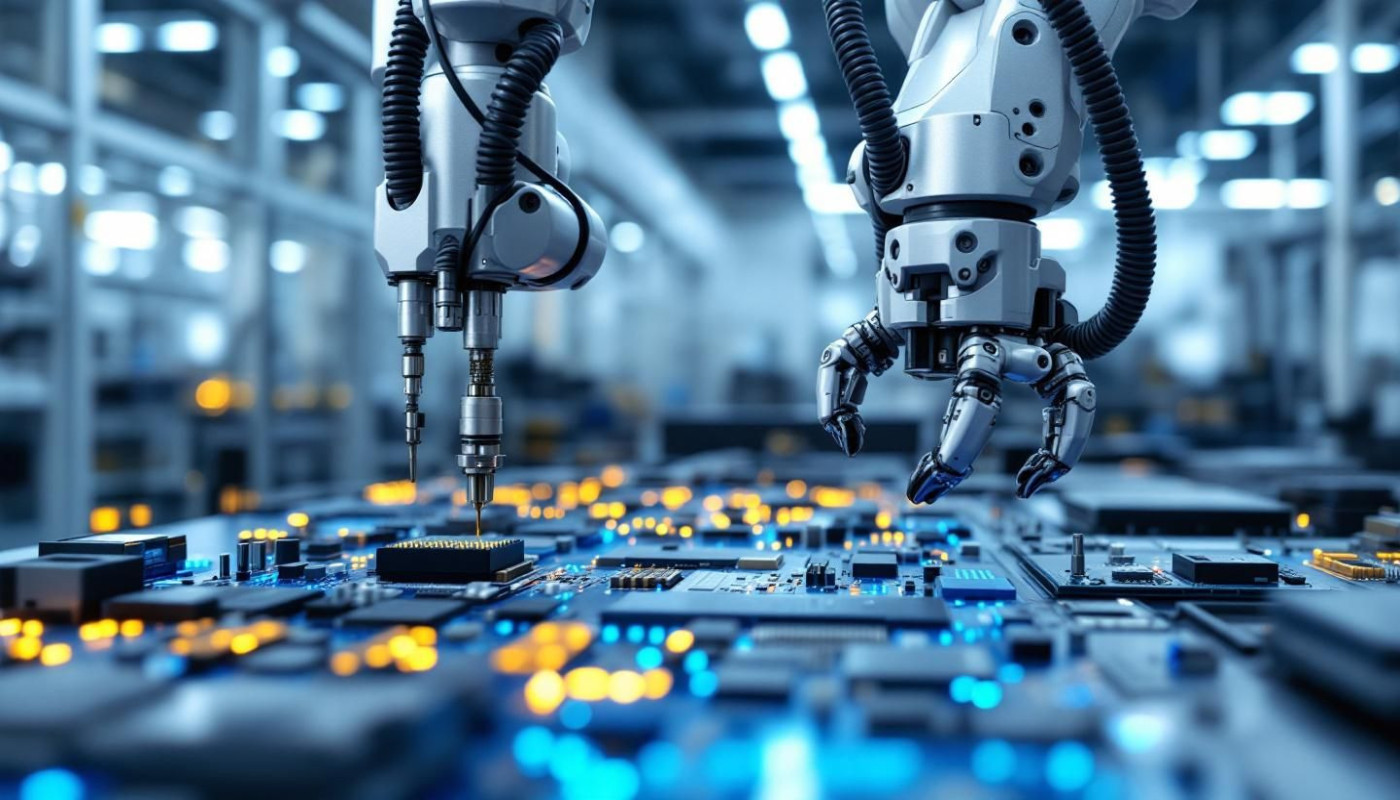Table of contents
Across a diverse range of industries, artificial intelligence is rapidly transforming the way organizations operate. Businesses are discovering new possibilities for streamlining processes, maximizing productivity, and making data-driven decisions. Explore the following insights to understand the profound impact that AI is having on business operations and how it is redefining efficiency in today’s competitive landscape.
Boosting productivity through automation
AI-powered automation is rapidly transforming workflow management and task execution in diverse sectors, bringing profound benefits to organizations seeking productivity improvement and operational efficiency. Through the integration of robotic process automation (RPA), businesses can automate repetitive and time-consuming tasks, enabling employees to focus on more value-driven activities. In manufacturing, AI-driven machines streamline assembly lines, monitor equipment health, and predict maintenance needs, dramatically reducing downtime and manual intervention. The logistics sector employs workflow automation to optimize shipping routes, manage inventory, and track deliveries in real time, which accelerates order fulfillment and enhances customer satisfaction.
Administrative services are also experiencing significant gains from ai in business applications. Tasks such as data entry, invoice processing, and compliance checks are now handled by intelligent bots, which not only process information faster but also reduce human error rates to a minimum. This shift towards process optimization ensures more accurate data handling and quicker decision-making across all business units. Organizations that embrace AI-driven automation consistently report lower operational costs, higher throughput, and improved employee morale as their teams are relieved from mundane workloads. These developments demonstrate how AI is elevating organizational productivity while setting new standards for excellence in multi-industry business operations.
Enhancing decision-making with data analytics
AI data analytics is reshaping how organizations across finance, retail, and healthcare interpret information for business intelligence and strategic planning. By leveraging machine learning algorithms, AI systems process vast volumes of structured and unstructured data, revealing industry insights that would otherwise remain hidden. These technologies identify patterns, forecast consumer behavior, and anticipate market shifts, enabling predictive analytics that refines decision-making processes. In finance, AI-driven analytics help detect fraud, assess credit risk, and optimize investment strategies. Retail benefits from demand forecasting and personalized recommendations, while healthcare organizations utilize AI to predict patient outcomes and enhance resource allocation. Access to real-time, actionable insights allows leaders to adjust tactics swiftly, ensuring that enterprises maintain a competitive edge. Companies like Crescendo Agency are at the forefront, providing tailored solutions that integrate sophisticated analytics into core operations, maximizing efficiency across multiple sectors.
Personalizing customer experiences
AI-driven solutions are revolutionizing customer personalization by analyzing vast datasets derived from consumer behavior, transaction history, and real-time feedback. In e-commerce, sophisticated algorithms and natural language processing (NLP) enable platforms to recommend products, automate responses, and deliver tailored experiences that reflect individual preferences. Hospitality brands utilize AI customer service tools to anticipate guest needs, streamline check-in processes, and personalize offers, resulting in heightened user engagement and repeat visits. Financial services implement AI-powered analytics to detect patterns, adjust product offerings, and provide personalized advice, all while maintaining regulatory compliance. By harnessing consumer insights from multiple channels, businesses can foster loyalty and long-term satisfaction, setting new benchmarks for how personalized interactions and services are delivered across industries.
Streamlining supply chain operations
AI supply chain solutions revolutionize supply chain optimization by leveraging predictive modeling to enhance demand forecasting, inventory planning, and logistics management across diverse sectors. In retail, predictive modeling analyzes historical sales data and market trends, allowing companies to respond swiftly to shifting consumer preferences, minimize stockouts, and reduce excess inventory. Manufacturing operations use AI-powered demand forecasting to schedule production runs with precision, decreasing lead times and optimizing resource allocation. Distribution networks benefit from intelligent logistics management, where machine learning algorithms predict delivery bottlenecks, optimize routing, and ensure timely shipments. Integrating AI into supply chain processes empowers organizations to make data-driven decisions, streamline coordination between suppliers and distributors, and maintain greater inventory control, ultimately improving operational efficiency and resilience in complex, multi-industry environments.
Strengthening risk management and security
AI risk management solutions are redefining business protection by advancing fraud detection and cybersecurity practices across industries. Automated monitoring powered by machine learning algorithms excels in identifying suspicious patterns and responding to emerging risks in real time. In banking and insurance, anomaly detection systems can pinpoint irregular transactions or policy applications, greatly reducing the chances of undetected fraud. Information technology sectors deploy these capabilities to monitor network traffic, flag vulnerabilities, and defend sensitive data from breaches. By integrating automated monitoring and anomaly detection, organizations create adaptive security frameworks capable of evolving alongside new threats, ensuring robust business protection and compliance with regulatory requirements.
Similar

Exploring The Impact Of Industry Automation On Modern Businesses

Leveraging niche markets for business growth strategies in a post-pandemic economy

The Impact Of Trade Shows On Local Economies: A Deep Dive

Exploring The Benefits Of Free AI-Powered Chat Services

